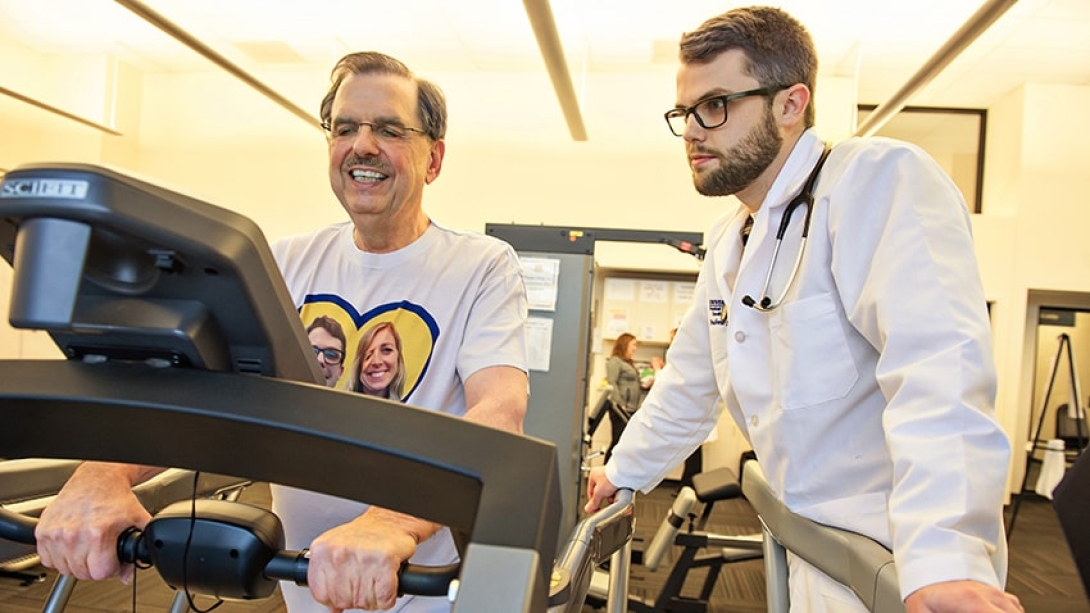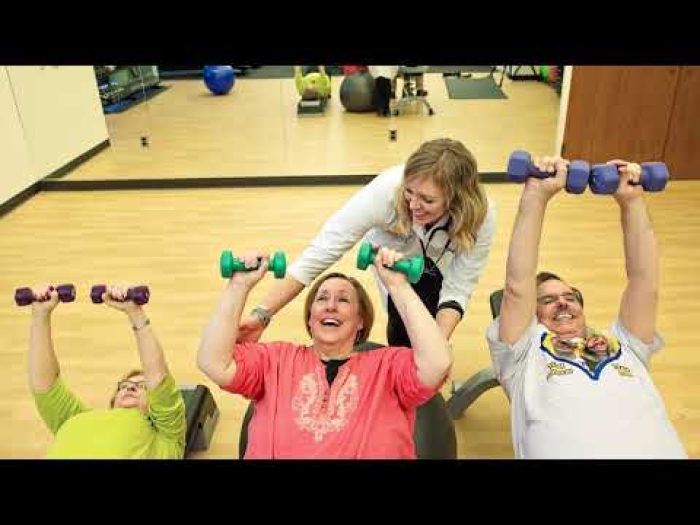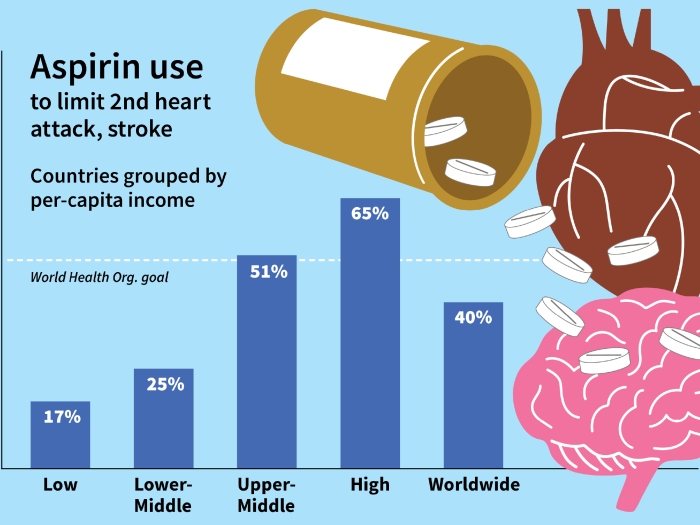A Michigan Medicine program helps patients diagnosed with multiple health conditions improve their diet, fitness and mental health.
7:00 AM
Author |
Dale Brewer is determined to stay active and healthy as he ages — and to reduce his risk of disease, including heart attack and stroke.
MORE FROM MICHIGAN: Sign up for our weekly newsletter
The 68-year-old set those goals nearly a year ago, after he met with his primary physician over concerns about weight gain, cholesterol, loss of body strength and high blood pressure.
"I knew I needed to become healthier and stronger as I aged," Brewer says, noting that a key motivator was keeping up with his 3-year-old granddaughter.
Brewer was diagnosed with metabolic syndrome, a condition that involves the presence of three or more health issues: excessive weight (especially in the abdominal area), elevated blood pressure, elevated triglycerides (a type of fat in the blood), low levels of HDL (the "good" cholesterol) and elevated blood sugar.
Given his diagnoses, the semiretired real estate professional was an ideal candidate for the Michigan Medicine Metabolic Fitness Program.
Major benefits
The program, also known as MetFit, combines supervised workouts, nutrition education, stress management and strategies for behavior change. Admittance requires a physician referral and includes 12- and 24-week options.
SEE ALSO: Fish, Fruits, Healthy Fats: What Heart Patients Should Eat
For Brewer, the benefits were plentiful.
Not only did he lose 40 pounds over six months, but his improved cholesterol and blood pressure numbers also eliminated the need for cholesterol medication and lowered the dosage of his blood pressure medication.
MetFit director Patrick Walden says the health issues that affect program participants can't be underestimated: "These conditions — weight, high blood pressure, unhealthy cholesterol, high blood sugar — increase a person's risk for heart attack, stroke and diabetes."
Inherited conditions certainly contribute to metabolic syndrome, he notes. But unhealthful habits do, too.
Says Walden: "While we can't change our parents, making healthy lifestyle changes can reduce the risk of health conditions down the road, and there's no time to waste."

One-stop shop
Brewer, a resident of Whitmore Lake, Michigan, started his journey in June.
The comprehensive program gave him access to dietitians who taught him about food quality and how to create a reasonable diet for weight loss; psychologists for emotional support; and exercise physiologists to oversee his workouts.
"I knew I needed a program to give me direction, and I was also concerned with being monitored by experts to make sure I was doing everything correctly," he says. "I wanted someone who understood my health situation.
"The staff is very hands-on and helpful. They offer things that a regular workout facility doesn't have. It's an ongoing partnership, with both a professional and friendship-type relationship."
An added bonus was getting to know fellow participants who faced the same challenges.
"The program allows you to develop a camaraderie with others," Brewer says. "There are no strangers, because there's continuity in the program. You see friendly faces all the time."
Better life ahead
After completing the MetFit program, Brewer has noticed true mental and physical change.
"My body strength is improving, and my breathing is better with less wheezing," he says. "I can do a lot more and have increased my exercise and lung function."
SEE ALSO: Exercise Doesn't Have to Be as Long (or as Painful) as You Think
Perhaps best of all, he's now strong enough to lift his granddaughter multiple times, which, he admits, "I could never have done when I started the program."
Brewer is following a six-month maintenance schedule aimed at helping him sustain a positive path. "There's no formal class training but oversight by the sports physiologists and access to dietitians," he says.
Brewer, no surprise, recommends the program to anyone in need. "I encourage people to participate because of the benefits they'll realize based on the time and energy they want to put into it."

Explore a variety of healthcare news & stories by visiting the Health Lab home page for more articles.

Department of Communication at Michigan Medicine
Want top health & research news weekly? Sign up for Health Lab’s newsletters today!





